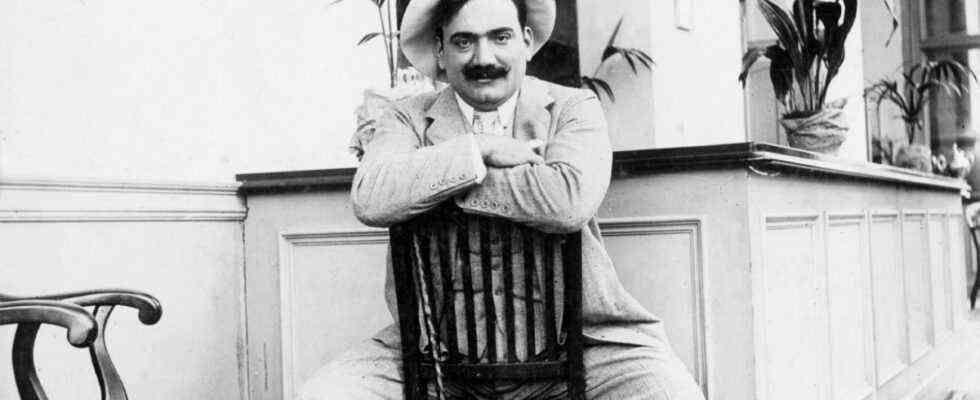The death of Enrico Caruso in Naples on August 2, 1921 and the circumstances surrounding his funeral are only biographical data. The art of the singer alone, the strength and splendor of his voice and the characteristics of his singing make up the aesthetic added value. And maybe it is the vocal actors in the opera who know their own kind best. Only they, not the agents, eulogists, critics, are close to them on stage. As Enrico Caruso and the soprano Frieda Hempel were, for example: “The sound of his voice is like sinking into a deep, soft, gentle armchair made of velvet. Caruso’s singing was so perfect, so heavenly.”
No opera fan raved about in 1907, and Caruso admiration followed joint appearances: the Italian and the German sang together on the stage of the Metropolitan Opera in New York. The lyrical melting of the Caruso singing had a bewitching effect, and it still does today – the magical sound from a croaking century away, sent by the shellac record. Only Caruso himself assessed his voice and calling more soberly: “A singer needs a broad chest, a big mouth, ninety percent memory, ten percent intelligence, hard work and a little in the heart.”
His career began on the streets, with church choirs and the harbor bars of Naples becoming early battle zones for the voice. Born there in 1873, raised in a poor family with many children, taught by local teachers, Caruso got to the big stages rather late, then quickly to La Scala in Milan and from there to New York. The Metropolitan Opera remained the center of his art, he performed there hundreds of times – with forays into his extremely extensive repertoire between bel canto and verismo, shaped by his love for Italy’s great composers: Rossini, Donizetti, Verdi, Puccini. The new century invention of the record was his medium, and the young music industry in turn invented the cult figure Caruso, thanks to hundreds of studio recordings.
Its popularity reached all social classes, its nimbus corresponded to today’s soccer superstars. In Mexico City, Caruso sang in bullring. The charisma lay in the seductive power of his voice, it boasted with its baritone timbre and the richness of timbres, its infallible sense for, according to one critic, “to draw the bow of a cantilena”. The world experienced him first hand, the exhausting tours were triumphant, he worked hard for fame and fortune.
Deeply insecure by exertion, life crises and illnesses, Caruso later planned a calmer career, settled down. He carefully withdrew to Naples, where he died unexpectedly, barely fifty years old, mourned worldwide. Hundreds of thousands attended the funeral, all buildings along the funeral procession hidden behind black cloths, King Victor Emmanuel III. personally had the body laid out in the church of San Francesco di Paola, which otherwise only had royal ceremonies. For years he lay there embalmed in a glass coffin, today a mausoleum houses the honorary grave.

